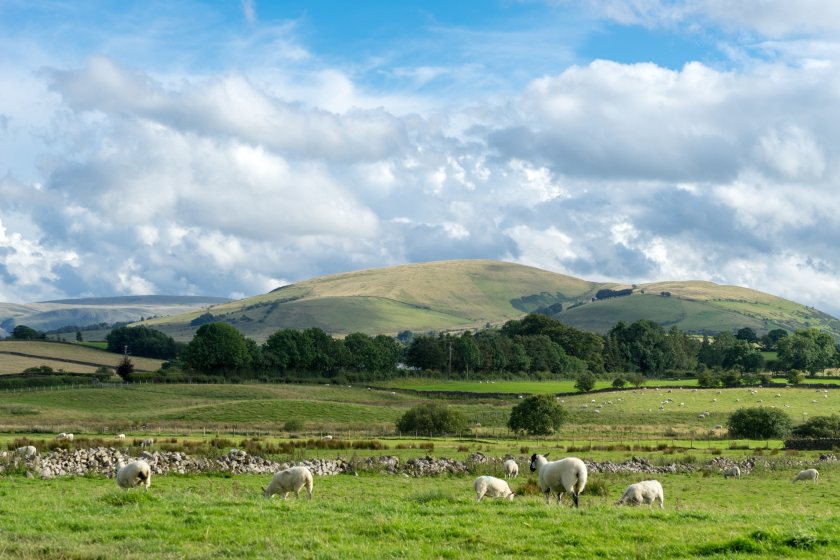
A new report has brought together evidence to underline the UK sheep sector's role in sustainable agriculture, and what more can be done to progress it even further.
Sheep farming, which has previously been criticised for being non progressive, now has an 'incredible contribution' toward environmental outcomes and food production.
Released by the National Sheep Association (NSA) and the Harper Adams School of Sustainable Food and Farming, it explores the sector's sustainability and considers the trade-offs when required to meet multiple goals.
The UK approach to farming sheep aligns with sustainable, regenerative interests in both uplands and lowlands, the report states.
It says British livestock are "free to enjoy a life close to nature" whilst farmers are focused on reducing inputs, striving towards responsible medicine use and management practices that will sequester carbon.
But there is more that could be done, and the report outlines the steps that sheep farmers can do and the support mechanisms required to best ensure this can be achieved.
The report emphasises that sustainability has four key pillars – environment, economics, health and society – and that all must be considered together rather than in isolation.
Professor Jude Capper, of the Harper Adams School of Sustainable Farming, said sheep production was an 'incredibly important' component of UK agriculture that had "shaped most of the landscapes in which we live and work".
"At a time when the sector is beset by economic, environmental and social challenges, there's a real need to recognise and celebrate the myriad benefits that sheep production provides," she explained.
"It's been a pleasure to work with NSA in detailing the immense value of our sustainable, resilient, eco-friendly sheep production systems."
Cumbrian sheep farmer Will Rawling, who contributed to the report, said it highlighted the importance of sensible and sympathetic land management, and that was "part and parcel of what we do".
He said: “On our farm we have moved away from the systems promoted by post war, cheap and plentiful food policies, whilst remaining productive and hopefully efficient in every respect.
"The environment in which we farm has supported generations of ours, as well as lots of other families of fauna and flora.
"We now also know that the carbon storage and sequestration capabilities of these diverse habitats are an important feature that will help to promote a healthy future environment.”
Powys sheep farmer John Yeomans, who also provided a case study for the report, added: "We farm productively in a way that goes hand in hand with improving the environmental footprint of our business.
“Planting more than 40,000 hedge and tree plants, a small wildflower meadow and several ponds, much completed without grant aid, has all been part of this.
"It has been said by many but stands repeating, grazed livestock is a major part of the solution to our planet's challenges, and not the problem.”
